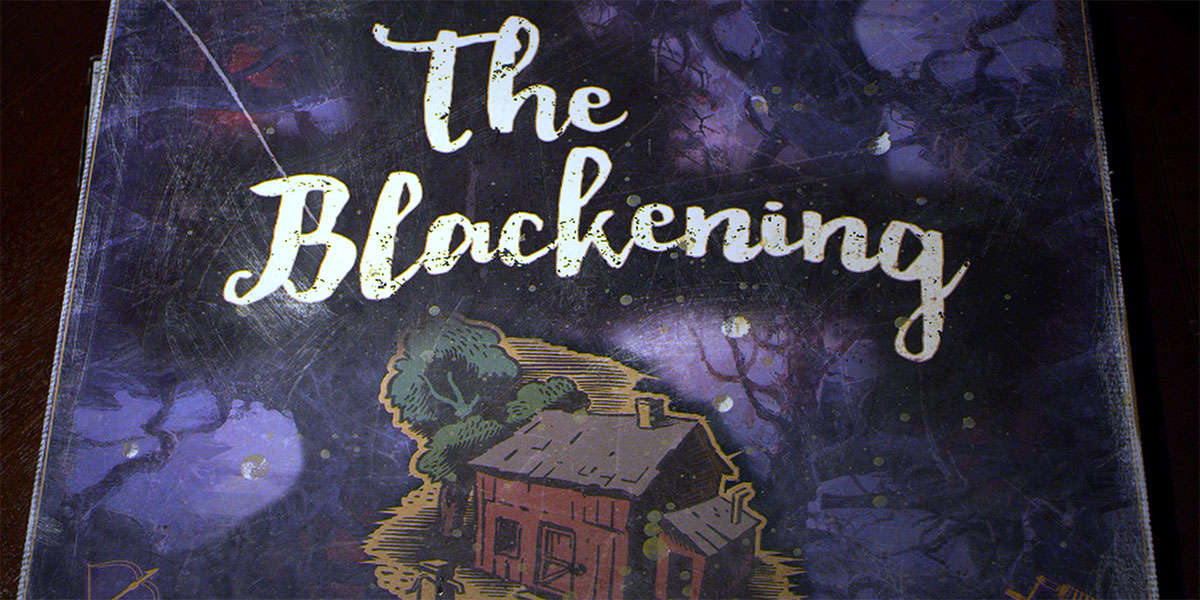The original short directed by Chioke Nassor asked a group of Black friends to choose who among them was the “blackest” as a sacrifice to save the rest. Why? Because the killer got confused when starting his spree, unable to find the “Black character” his trope-fueled brain demanded as its first victim. Hilarity ensues, everyone desperately trying to erase said blackness to keep breathing, revealing embarrassing (some unforgivable) secrets along the way. It’s an ingenious conceit for satire that’s perfectly suited for a full-fledged horror comedy willing to tread heavily in that vein while also holding some surprises up its sleeve. So that’s exactly what screenwriters Tracy Oliver and Dewayne Perkins (the lone holdover from that skit) do with Tim Story’s The Blackening.
Fans will be glad to hear the aforementioned scene is reenacted almost verbatim here, complete with that revelation. Before we get there, however, the stage must be set with Morgan (Yvonne Orji) and Shawn (Jay Pharoah) readying the Airbnb they rented for a reunion weekend of fun and drinking with friends. It’s during their preparations that they stumble upon a boardgame that literally cannot be more offensive: a blackface caricature in the middle demands they pick cards with questions meant to quantify their blackness. What they don’t initially realize is that this curio is more than a lark. Whether a Jumanji scenario bringing its racist ringleader to life or a distraction so a real-life serial killer can terrorize them, this party just got wild.
You have the put-together attorney lead in Lisa (Antoinette Robertson) who’s trying to live her best life without rocking the boat of her friends. There’s her gay bestie Dewayne (Perkins) who doesn’t know she’s started seeing her old flame—the one who always breaks her heart so he can build it back up. That boyfriend is Nnamdi (Sinqua Walls), a personal trainer who doesn’t appear to have the capacity to ever change his selfish ways. Add their former gangbanger buddy King (Melvin Gregg) who rejected the thug life for his white wife; the boisterously judgmental yet fun Shanika (X Mayo); and their mixed-race, Black-power philosophizing friend Allison (Grace Byers). Oh, and don’t forget Clifton (Jermaine Fowler), the nerdy square they all barely remember.
Oliver and Perkins throw the kitchen sink of horror tropes and Black stereotypes into the blender, overlapping categories whenever possible to craft memorable laughs and effective scares since Story shoots it all like a bona fide slasher. Its aesthetic, straight down to the score, is legit. The difference is that their characters are self-aware enough to understand their dire straits. They know they shouldn’t split up, but it might keep them alive. They know they shouldn’t trust the police (especially Diedrich Bader’s aptly named Officer White), but he might really be a “good one.” And is it so wrong to assume their own reductive ideas of each other might come in handy? Regardless of whether King is reformed, it would be great if he was still packing heat anyway.
The reason is simple: this isn’t as much a send-up of the genre as payback for it. What’s the point of calling attention to the clichés if you just utilize them anyway? Why not also turn the tables? While that’s not to say none of them will die—blood must be spilled—it’s merely better to let them use what they know to their benefit. They aren’t a bunch of dumb, entitled white kids looking for easy sex and falling prey to transparent traps as a result. These are adults who’ve all endured what it means to be a minority and have the deck stacked against them. They willingly stack it against themselves sometimes too. It’s therefore time to put that systemic racism away and work together to survive.
Doing so means burying some long-standing hatchets and proving oneself the better person regardless of being right. This is obviously easier said than done when some of these rifts are tattooed to their bones, but a common enemy can work wonders for realigning your allegiances. And when the game being played has already proven itself to be unfair, cheating becomes a necessity. Lisa and Allison being able to talk to each other through glances may be shady when playing Spades, but it can also orchestrate a surprise attack in full view of the homicidal maniac as he talks too much. Even stress (and Adderall) can augment focus to pull out obscure answers to trivia questions with life or death ramifications like naming five Black actors who were in Friends.
By injecting these goofy, skit-like gags into an otherwise straight horror—rather than stringing them together with horror elements—The Blackening is able to sustain its early momentum. I won’t lie and say I didn’t worry the film would eventually feel one-note as it tried to maintain relevance. But zooming out to create something fresh from the race politics skewered in the short proves the right move. It allowed for a recentering of the conceit and a new robust mystery with which to scaffold around it. And when the entire cast embraces the self-deprecating nature needed to lean into the stereotypes while also calling them out, it’s impossible not to climb onboard via comedy alone. If the twists and turns are hardly shocking, that bluntness is the point.
The Blackening premiered at the Toronto International Film Festival.

